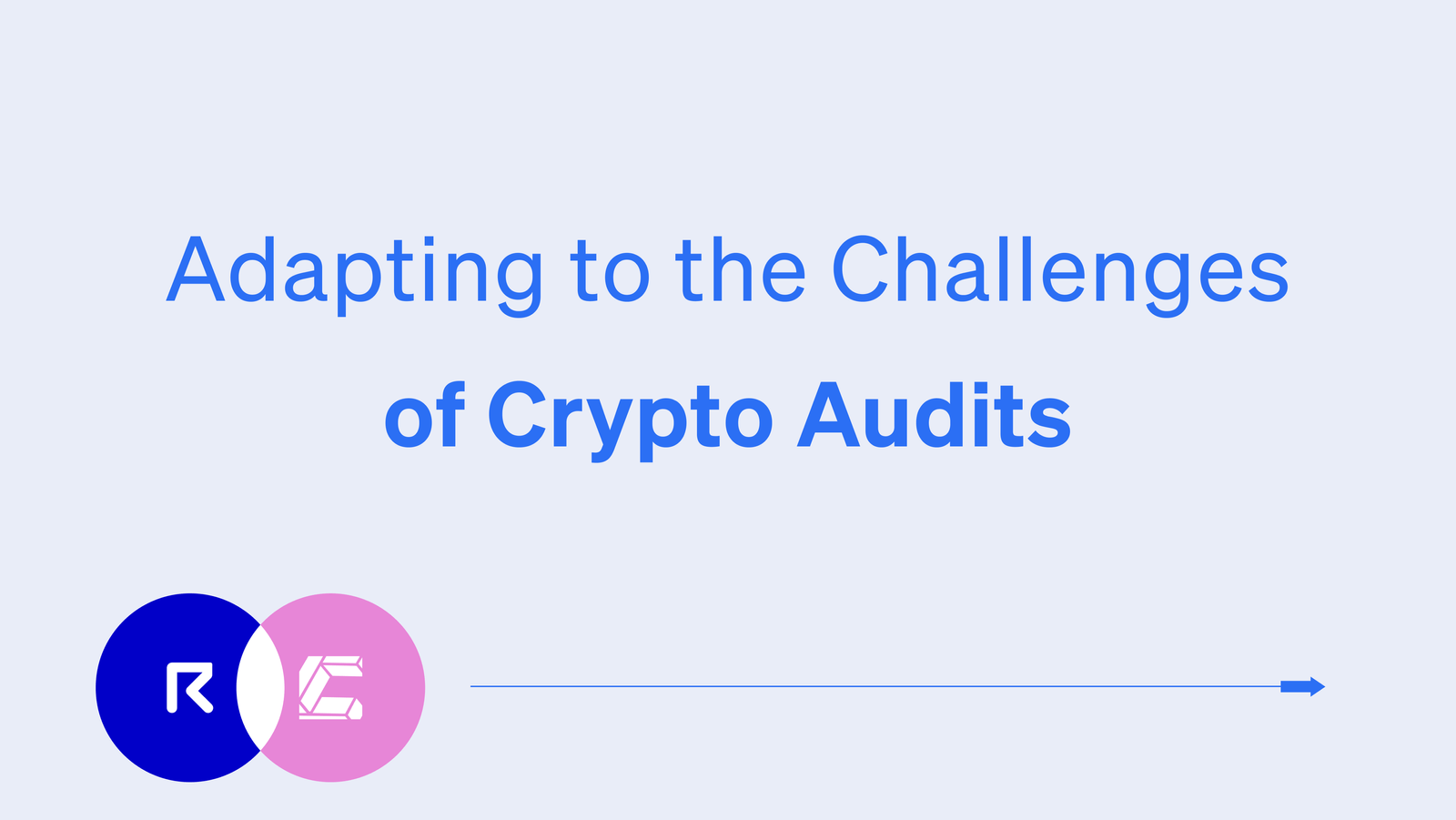Crypto Compliance: regulations, risk & audit
Learn about risk management, audits, KYB, law, hacks prevention & secure operations for Web3 businesses.
What Is Crypto Compliance?
Crypto compliance encompasses the legal, financial, and operational frameworks that Web3 organizations must follow to operate within regulatory boundaries. Whether you're running a DAO, operating an exchange, or building a crypto-native business, understanding these requirements isn't just about avoiding penalties—it's about building sustainable, trustworthy operations.
Anti-Money Laundering (AML) procedures form the backbone of crypto compliance. Unlike traditional banking, crypto transactions happen 24/7 across borderless networks, requiring more sophisticated monitoring systems. Many successful crypto companies now use AI-powered transaction analysis tools that detect complex money laundering schemes.
Know Your Customer (KYC) and Know Your Business (KYB) requirements have evolved beyond simple identity verification. Modern crypto KYC includes ongoing monitoring of customer risk profiles, regular compliance updates, and sophisticated screening against global sanctions lists while balancing regulatory requirements with user privacy expectations.
Tax reporting obligations present unique challenges in crypto. Digital assets don't fit neatly into traditional tax categories, and their 24/7 trading nature creates complexities traditional finance never faced. Companies need systems that track cost basis across multiple chains, handle complex DeFi transactions, and generate reports satisfying tax authorities in multiple jurisdictions.
Audit preparedness has become a competitive advantage. Organizations maintaining clean, auditable records find themselves better positioned for institutional partnerships, major exchange listings, and funding rounds. This includes detailed transaction histories, proper segregation of duties, and documented compliance procedures.
As crypto adoption accelerates globally, regulatory scrutiny has intensified dramatically. Compliance isn't optional—it's a strategic pillar determining which companies can scale successfully.
Navigate crypto compliance with confidence
We covered all the topics for you.
Regulations, KYB & legal compliance
Audit & operational compliance
Crypto risk & business security
Sick of wallet chaos & compliance stress?
There’s a better way.
Fast, Compliant, Scalable.
Your Finance Ops HQ, ready when you are.
Global Crypto Regulation: A Complex Patchwork
The crypto regulatory landscape presents one of the most complex compliance challenges in modern finance. Crypto regulation varies drastically by jurisdiction, creating a maze companies must navigate carefully.
Switzerland has established itself as the gold standard for crypto regulation. FINMA provides clear guidance on token classification, and the Swiss Blockchain Act offers legal certainty attracting enterprises worldwide. Their technology-neutral approach regulates activities rather than specific technologies.
Singapore developed one of the most comprehensive crypto regulatory frameworks through the Monetary Authority of Singapore (MAS). Their Payment Services Act covers digital payment tokens to stablecoin operations, with regulations that are both protective and innovation-friendly.
The United States presents a more fragmented picture. The SEC and CFTC often provide conflicting guidance, while different states implement varying requirements. This regulatory uncertainty has pushed some companies offshore but created opportunities for compliance-focused businesses.
Key Regulatory Areas
Securities classification of tokens remains the most critical determination. The Howey Test (US), FINMA's three-category system (Switzerland), and similar frameworks determine whether your token is a security, commodity, or something else—driving all other compliance requirements.
Stablecoin supervision is tightening globally. The EU's MiCA regulation, proposed US stablecoin legislation, and similar frameworks establish strict requirements for reserves, attestations, and operational controls.
Proof-of-reserves requirements gained prominence after collapses like FTX. Regulators now expect cryptographic proof that companies actually hold claimed custody assets.
DAO recognition and governance rules represent the regulatory frontier. How do you regulate decentralized entities? These questions are being answered in real-time.
For Web3 CFOs, compliance officers, and founders, understanding where you operate, how tokens are classified, and what data needs reporting can make or break your product's scalability and legal safety.
The Strategic Role of KYB in Crypto Operations
While Know Your Customer (KYC) has become standard in crypto user onboarding, Know Your Business (KYB) is essential for organizations handling B2B transactions. KYB processes verify identity, corporate structure, and risk profiles of business counterparties to prevent fraud, money laundering, and regulatory violations.
DAOs funding other projects face unique KYB challenges. Traditional KYB relies on corporate registrations, but DAOs often exist purely on-chain. Progressive compliance teams develop verification methods assessing DAO legitimacy through on-chain governance history and treasury transparency.
Crypto payroll providers must implement sophisticated KYB processes, verifying corporate clients have proper authorization to pay employees in crypto while understanding local labor laws and tax obligations.
Stablecoin on/off ramps represent critical infrastructure connecting traditional finance with Web3. These services must maintain relationships with both banks and crypto protocols, requiring KYB processes satisfying both regulatory environments simultaneously.
Exchanges and OTC desks handle massive volumes with diverse counterparties. Leading platforms use automated screening combined with risk-based manual reviews, onboarding legitimate businesses quickly while catching bad actors.
Comprehensive Crypto Risk Management
Crypto risk management extends beyond private key security to encompass financial, operational, legal, and reputational risks. The sophistication has evolved dramatically as institutional players entered the space.
Treasury mismanagement due to token volatility represents one of the most common threats. Successful organizations implement hedging strategies using crypto derivatives, maintain diversified stablecoin reserves, and employ dedicated treasury management teams.
Wallet security breaches continue evolving in sophistication. Recent DAO payroll attacks demonstrated even multi-signature processes can be compromised through social engineering. Modern security frameworks implement defense-in-depth strategies with multiple independent controls.
Regulatory compliance failures can result in devastating penalties. Binance's $4.3 billion settlement in 2023 illustrates potential costs. Effective risk management includes ongoing regulatory monitoring, proactive legal counsel, and documented compliance procedures.
Smart contract risks affect organizations using DeFi protocols. Leading organizations implement formal verification processes, conduct regular audits, and maintain bug bounty programs.
Risk mitigation requires adaptive multi-signature wallets with different thresholds, automated compliance monitoring, comprehensive audit trails, and diversified stablecoin strategies. Increasingly, organizations implement real-time risk analytics for comprehensive visibility.
Web3 CFO's hack about crypto compliance and regulations
Get up to date with the most read publications of the month.
Crypto Audit Readiness and Compliance
Audit preparation has become critical for Web3 finance teams. Crypto audits must align with established accounting standards like GAAP or IFRS while accommodating digital asset characteristics.
Reconstructing comprehensive on-chain transaction histories presents significant technical challenges. Modern audit preparation involves specialized crypto accounting software that automatically categorizes transactions, handles complex DeFi interactions, and generates auditor-friendly reports.
Accurate cost basis calculations become complex with corporate actions like forks, airdrops, and governance tokens. Each event can modify tax basis of existing holdings, requiring sophisticated tracking systems maintaining audit-ready documentation.
Managing spam tokens and airdrops creates practical complications. Audit-ready organizations establish clear materiality threshold policies and maintain systems separating meaningful transactions from blockchain noise.
Proof-of-reserves implementations require cryptographic verification companies hold claimed assets. This involves generating cryptographic proofs demonstrating asset ownership without revealing sensitive position information.
A robust crypto audit process prepares companies for partnerships with traditional financial institutions, major exchange listings, and institutional funding rounds.
Strategic Advantages of Proactive Compliance
Compliance has evolved from necessary burden to strategic business enabler. Organizations with strong foundations in crypto regulation understanding, robust KYB practices, comprehensive audit preparation, and sophisticated risk management protect themselves while positioning for accelerated growth.
Companies investing in compliance infrastructure early gain significant advantages: accessing banking relationships, attracting institutional investors requiring regulatory certainty, and operating in jurisdictions where competitors are excluded.
The job market increasingly rewards professionals bridging Web3 innovation with traditional regulatory requirements. Whether you're a Web3 CFO, DAO treasurer, or crypto accountant, understanding compliance principles is essential for staying competitive in an increasingly regulated landscape.
The future belongs to organizations successfully combining Web3's innovative spirit with operational rigor demanded by regulators and institutional partners. Compliance provides the foundation for long-term success in an industry where trust is the ultimate currency.
The Web3 Finance Hub
A place to learn how to optimize and scale your finance operations.
Crypto accounting
Crypto compliance & Regulations
Crypto payments & receivables
Crypto spend management
Crypto taxes
Crypto treasury management
Get our ultimate Web3 CFO guide
2025 Edition
A practical resource drawn from the experiences and insights of over 300 finance and operation leaders at innovative companies







